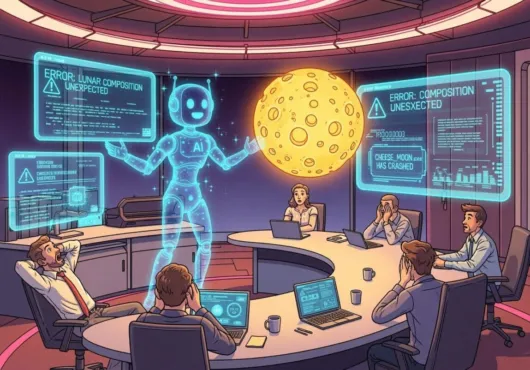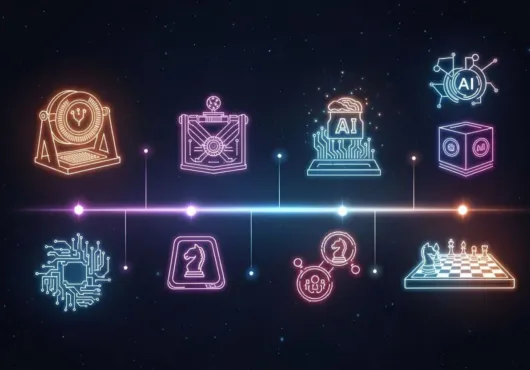AI models can imitate our voices, generate our art, and respond like they “understand” us. But under the hood, it’s all math and mimicry.
Prediction Isn’t Understanding
For all the noise about machine “sentience” or “empathy,” most of what AI knows about humans is what we’ve left in its training data—messy, biased, incomplete archives of our digital selves.
That’s not consciousness. That’s a reflection.
Here are five things AI, no matter how advanced, won’t truly understand about being human, because they can’t be computed, only lived.
Contradiction Without Error
Humans change their minds mid-sentence. We say one thing and mean another. We believe two opposing things at once and call it nuance—or just a Tuesday.
AI sees contradiction as a bug. We see it as identity.
Inconsistency is part of growth. But models trained for pattern recognition can’t parse the beauty in paradox. They’re built to resolve, not wrestle.
Emotion Without Logic
You cried during a commercial. You fell in love with the wrong person. You quit a stable job to make art in a garage.
Humans don’t make sense—and we never promised we would. AI, by design, optimizes for goals. But love, grief, awe, and nostalgia? They aren’t goals. They’re human glitches. And we guard them for a reason.
Cultural Context
AI can generate a poem in your language. But it doesn’t speak your childhood, your slang, your grief wrapped in humor. Culture is lived, not labeled.
Models trained on “diverse data” still miss the joke, the tension, the history behind a phrase. It can remix culture, but it can’t carry it. And that difference matters.
Moral Ambiguity
Ask an AI what’s right, and it’ll play it safe. It’ll cite popular opinion, repeat training bias, or hedge with disclaimers.
But morality isn’t a checkbox. It’s a moving target shaped by lived experience, struggle, injustice, and power. AI can simulate ethics. It can’t feel the weight of harm—or the courage it takes to act anyway.
Death, Aging, and the Passage of Time
You’re reading this with a body that’s aging. AI isn’t.
It doesn’t feel urgency, fear, or joy in the fleeting. It doesn’t know what it means to say goodbye. There’s no growing old, no losing a parent, no counting down the days. That kind of knowing doesn’t come from data. It comes from being mortal.
Conclusion: AI Can Copy Our Words, But Not Our Weight
The more AI evolves, the better it gets at pretending to be human. But don’t mistake the simulation for the soul. There’s no data set for contradiction, no prompt for real love, no output that can grieve.
And maybe that’s the point.
Let machines do the math. We’ll keep the mystery.
Up Next: Read “What Is Artificial Intelligence, Really?” →


